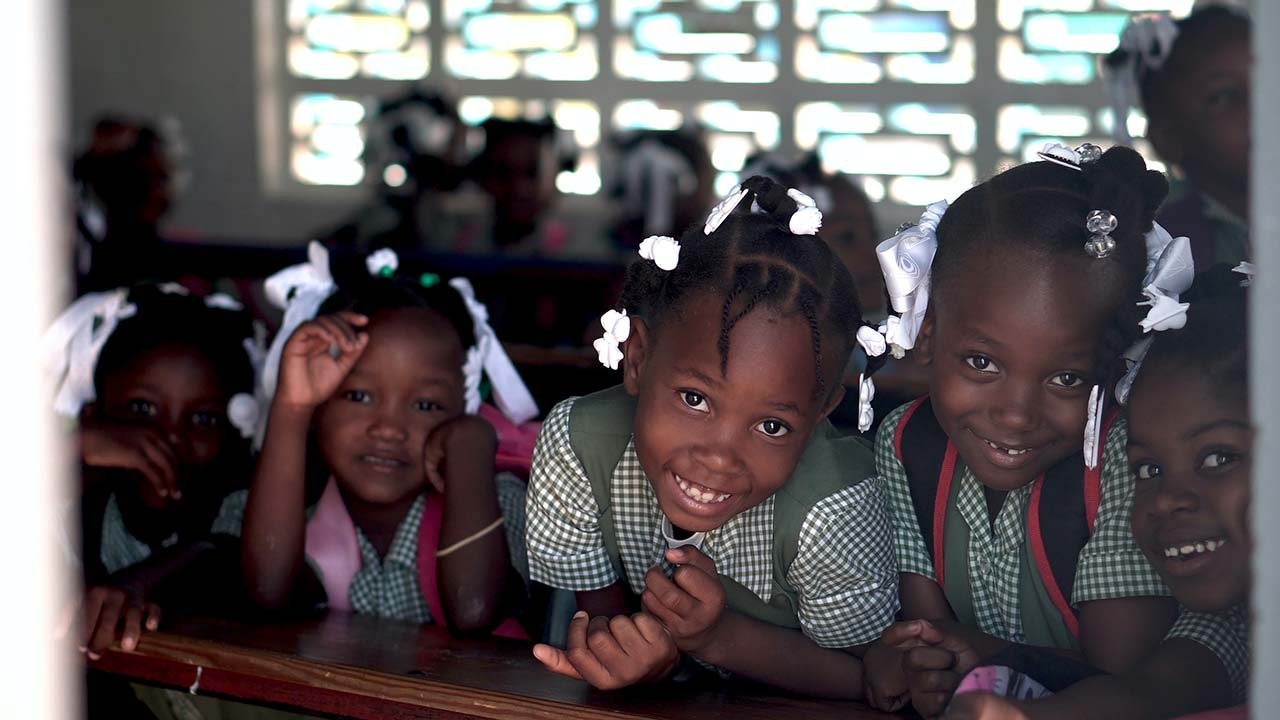SHE WILL GO TO SCHOOL!

School is a place of knowledge. It is an institution that distills and imparts knowledge and skills, in various fields, coupled with attitudes and values. It shapes the vision of the leaders of nations. It educates and creates social classes. Thus, we have illiterates and intellectuals. School is an indispensable detour for any ambitious person who wants to be accepted or to make a place for herself or himself in modern society. Clearly, going to school is a necessity for "success."
Most women in developing countries receive far less education than men.
Today, some 30 million girls of school age do not attend school. Let us remember the struggle of Malala, the young Pakistani activist, who is a living witness to the transformative power of quality schooling.
A story that repeats itself
Prior to the COVID-19 pandemic, over the past twenty years, the number of girls not enrolled in school had dropped by 79 million. This was the result of decades of efforts to get girls into school and reduce gender inequalities in access to education. But the current pandemic has put all that progress at risk.
We have already seen the impact that closing schools due to health crises can have on girls and their education.
During the Ebola outbreak in 2014-2015, more than 10,000 schools closed in Guinea, Sierra Leone, and Liberia, affecting nearly 5 million students. When schools reopened, students had collectively lost "approximately 1,848 hours of instruction."
The impact was even more severe for girls.
Prior to the Ebola outbreak, school-age girls in Guinea had completed only 0.9 years of school compared to boys, who completed an average of 2.7 years of schooling. In Sierra Leone, girls completed an average of only 1.8 years of school compared to boys, who completed an average of four years.
During the Ebola pandemic, many girls in Liberia became the sole breadwinners for their families. Even when girls re-enrolled in school at the end of the crisis, their attendance was affected as they had to continue to support their families.
With COVID-19, the disproportionate impact on girls' and boys' education is likely to become even greater. In addition, 50% of their total schooling could be lost. This is half of what girls' education could be under normal circumstances. Twenty million girls could be out of school by the time the pandemic is over, and many more will have lost months of education.
Can women really "succeed" without school?
The self-taught woman has some particularities. She is often passionate, and it is by personal motivation that she becomes excellent. She more than makes up for this apparent disadvantage, of not going to school, with an insatiable curiosity, many ideas and a huge amount of dedication and hard work.
Indeed, successful women wake up before others and surely go to bed after them. They work even harder. That's what makes all the difference.
This is the case of Akissi Delta, a famous Ivorian actress who is admired for what she has accomplished in life without school.
Akissi did not go to school by choice, or because she was happy, but because of her poor health. The actress even explains that she received a good education from her family and friends, and admits that despite this, today the lack of school education weighs as much on her oral expression as on her ability to manage her business properly. Indeed, she can neither read nor write.
She is like the millions of young women in the world who do not master the basics of reading and writing. Often hidden, this handicap places them in a situation of exclusion and dependence with heavy consequences for them and their entourage. Even when they are self-taught, their main concern is the lack of legitimacy they feel or are sometimes made to feel.
Investing in girls' education for the benefit of humanity
Due to traditional beliefs, poverty or war, thousands of young girls are deprived of the chance to go to school.
The importance of school for girls is well known. Women have immeasurable potential, and, as for any human being, education would allow them to blossom and benefit humanity. The lack of schooling for girls deprives the world of an enormous human resource. Educated, women could contribute greatly to the well-being of the world, to the reduction of mortality, to the promotion of education, to the fight against certain diseases, and to the growth of the economy. This would strengthen democracy for a stable and just society.
Girls' education saves lives: many mothers' lives could be saved if they completed their primary education.
Girls' education ensures higher incomes: educated women generally earn more than those with no education.
Girls' education helps end child marriage: if universal secondary education was achieved, it could help virtually eliminate child marriage.
Educating girls increases their potential tenfold: educated women are less likely to lack control over household resources, to be victims of domestic violence, or to be married too early.
The most striking injustice remains that poverty is declining worldwide while female illiteracy remains stable, accentuating gender inequalities.
However, the destiny of young women is at stake and if governments act now, the effects of not sending girls to school can be mitigated.
The girl must go to school. I remain optimistic. She will go to school.